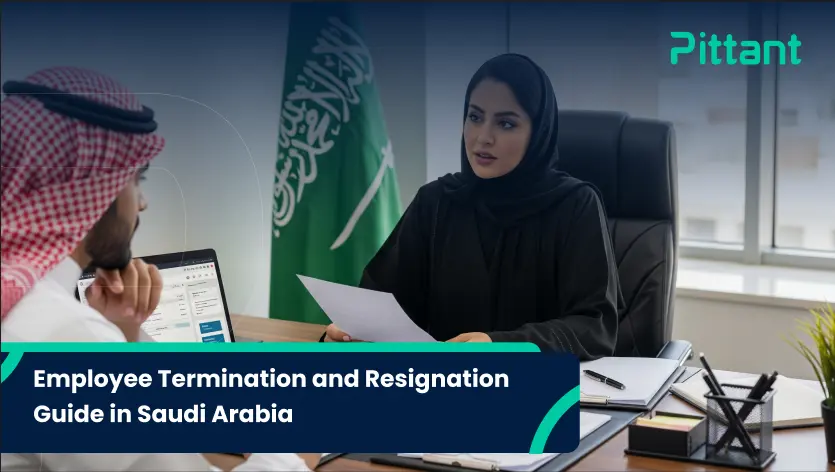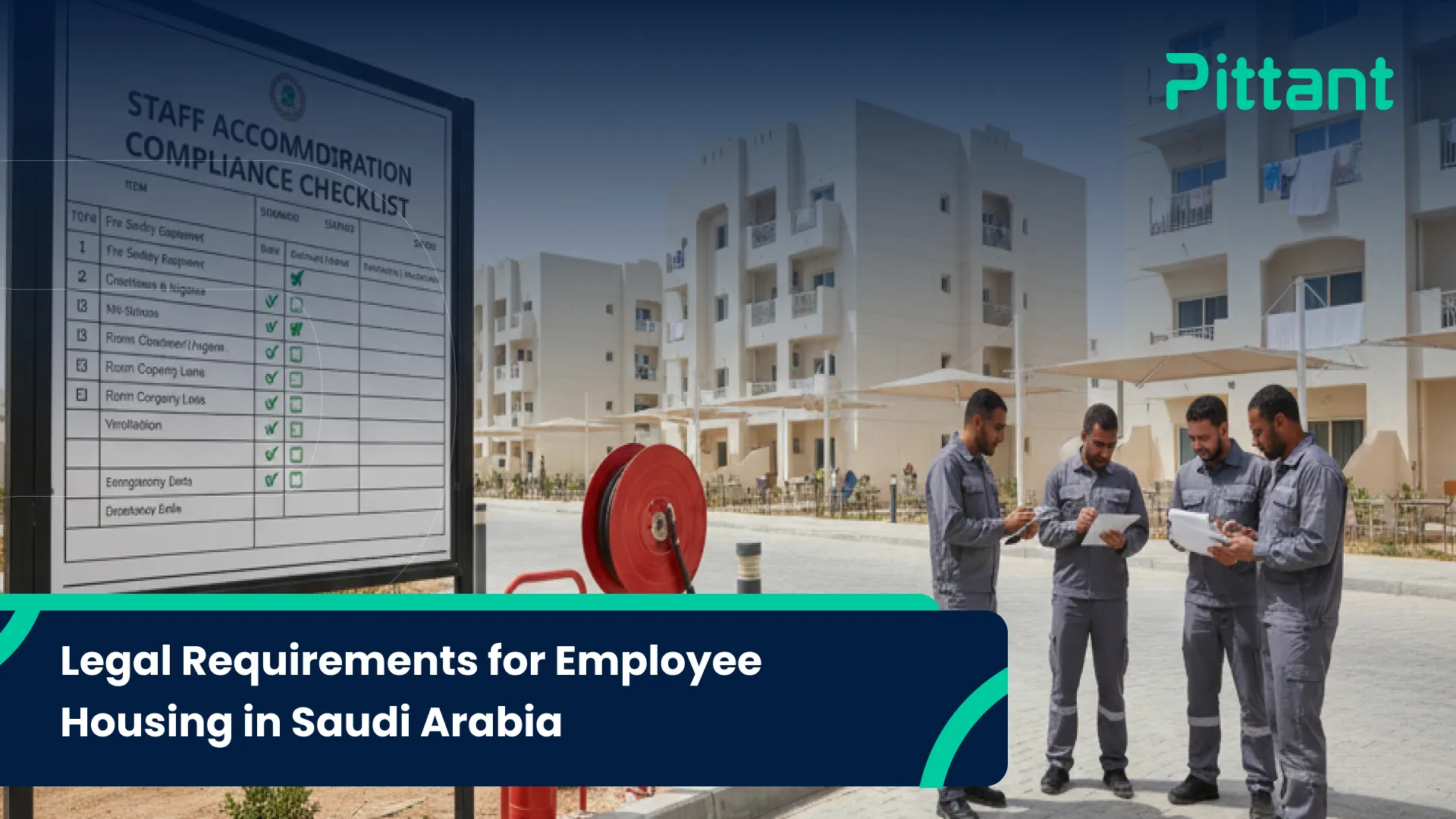Saudi Arabia’s stringent Labor Law controls the country’s fast-changing job market. This law is extremely significant for both employers and workers, especially for expatriates. To ensure that the end of service goes well and is authorized, you need to know the proper actions when you quit or are dismissed.
The labor law lays out specific standards regarding notice periods. These regulations depend on the type of contract and who is ending the relationship. Recent changes have made it easier for people to leave their jobs, but they have also set up an organized process for resignations, which includes using government websites.
Complying with these rules is crucial to protect employee rights and lower legal risks for companies. Let’s delve into this employee termination and resignation guide in Saudi Arabia for further details.
Saudi Labor Law and Hiring Agreements
Saudi Arabia’s job, dismissal, and labor laws give a complete set of rules that aim to govern the relationship between employers and employees, treat both sides fairly, safeguard their rights, and make it clear how to end a job.
The Saudi Labor Law is a set of regulations and procedures that cover various aspects of how people work and how they can end their jobs.
Written hiring agreements are required by Saudi labor legislation. These contracts must include details like the job description, wages, allowance, working hours, other benefits, and the policy for ending the job.
In KSA, there are two forms of labor agreements, and both of them clearly outline the extension and termination of employment.
Employee Resignation Process in the KSA
In Saudi Arabia, workers must submit a written resignation to their employer while complying with the law’s required notice period. The notice period is usually sixty days. It can vary based on the type of job contract. This Saudi labor law resignation process is made easier by the government’s online platform to ensure that the law is observed.
Saudi Labor Law for Employee Resignation
When starting the Saudi Arabia resignation process, workers must submit a written notice, and the typical notice time is based on the conditions of their contract of work. The worker must give acceptable reasons for quitting and comply with Saudi labor rules for settlements.
Notice Period in the KSA
Workers must submit a written notice when they resign, and the normal notice period for open-ended agreements is sixty days. The notice period in Saudi Arabia for hiring agreements with specific terms can be different, and the agreement must clearly state the date of the end of the job contract.
Payment Settlements After Dismissal or Resignation in the KSA
When a worker in Saudi Arabia quits or gets dismissed, they are entitled to a final settlement that includes their unpaid salary and end-of-service compensation. This one-time payout, which is based on the worker’s last basic salary and years of service, is an authorized privilege. The company has to pay it when the employee quits.
Payment Disbursement and Dues
The company must pay all final dues, such as salary and end-of-service perks, after dismissing an employee. Saudi Labor Law states that the employer has to pay all of the worker’s compensation if they quit.
End of Service Benefits
One of the most important parts of the Saudi Labor Law is the end-of-service allowances, which protect workers financially when they leave their jobs. Workers have the right to receive end-of-service allowances when they end their service, and many use an End of Service Calculator to estimate their exact entitlement based on salary and years of service.
End of the Job Contract under the Saudi Labor Law
The Saudi Labor Law defines the rules for ending labor agreements, including when both parties agree to end the contract, when the employers end the contract, they are liable to issue a written termination letter and pay the employee.
Everyone involved in an employment relationship has to know these norms and limits to preserve their rights and avoid legal problems.
Workers’ Rights for the End of the Job Contract
In Saudi Arabia, an employer can’t dismiss a worker without a valid reason. Employers are unable to terminate someone for discriminatory reasons or while they’re on specific leave, like sick leave or maternity leave, as long as they have not used all of their time off.
If an employee is unlawfully terminated, they are entitled to compensation.
End of the Labor Agreement by the Employer
According to the Saudi Labor Law termination rules, employers in Saudi Arabia may dismiss a worker for an adequate reason, including if they break the rules or fail to perform their job. The employer must give sufficient notification and pay all debts, including accrued wages and end-of-service incentives, to make sure the termination is fair and complies with the law.
Frequent Issues for Workers and Employers in the KSA
Here are some of the most prevalent issues workers and employers in Saudi Arabia have to deal with when it comes to resigning or being dismissed:
Conflicts Over Notice Periods:
People often get confused about the legally required notification time. The time frame depends on the type of agreement and who is ending it. If the right notice isn’t given or if a party doesn’t work during this time, they could face legal issues.
Agreement Terms:
One of the primary challenges is that people don’t understand numerous forms of agreements. If you don’t understand the rules for ending short-term and long-term contracts, notice periods, and pay, you could end up in a dispute.
Resignation vs. Dismissal:
It’s often hard to identify if a worker is quitting or being dismissed, which has a significant impact on their end-of-service compensation. For instance, quitting before a specific time can lower a worker’s right to benefits.
Conclusion
To make the process of quitting or getting dismissed go smoothly, it’s important to comprehend and adhere to the Saudi Labor Law. Both employers and workers are bound by the law when it comes to notice periods, proper reasons for terminating someone, and payment settlements.
Adhering to these rules preserves workers’ rights and helps firms stay out of court and avoid fines. Getting help from an expert HR consultant is a smart way to ensure compliance and have a professional, courteous dissolution of the work agreement.
FAQs
Can I quit my job in Saudi Arabia while I’m still under contract?
If a worker quits before the end of a short-term job contract in Saudi Arabia, the employer may ask for payment for the time left on the contract. Read the agreement you’ve signed carefully to understand the notice periods and penalty provisions.
Can an employer terminate someone in Saudi Arabia without giving them notice?
Yes, according to the KSA Labor Law, an employer may terminate a worker without warning if the reason is significant and particular, including serious misbehavior, dishonesty, violence, breaking job obligations, or using their position for personal advantage.
How long do you have to provide notice before quitting in Saudi Arabia?
In Saudi Arabia, workers must provide their employer a thirty-day written notice before quitting.
How does Saudi labor law figure out the end-of-service benefit?
In Saudi Arabia, there are two main variables that determine how much gratuity a worker gets: their base income and how long they’ve been with the company.
Can people in Saudi Arabia work after they reach retirement age?
In Saudi Arabia, workers can often keep working after they reach the legal retirement age, although there are some limitations that apply based on the type of work they do.



